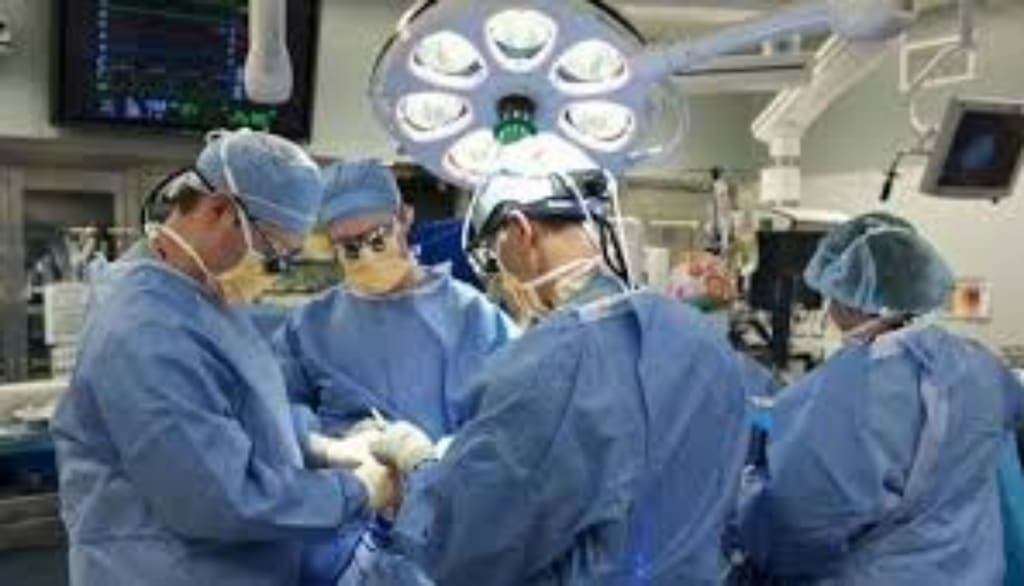Are weight loss surgeries safe..?
Give your best for it..

Introduction:
Surgical procedures for weight loss have become increasingly common for individuals struggling with obesity. This part focuses on different types of weight loss surgeries and the safety considerations associated with them. It is crucial to have a comprehensive understanding of these procedures and their potential risks and benefits before making an informed decision.
Gastric Bypass Surgery:
Gastric bypass surgery is one of the most common weight loss procedures. It involves creating a small pouch at the top of the stomach and rerouting the digestive system. The smaller stomach size restricts food intake, resulting in reduced calorie absorption. While this procedure can be highly effective, it carries potential risks. These include infection, bleeding, blood clots, leakage at the surgical site, and nutritional deficiencies in the long term. However, with appropriate preoperative evaluation and postoperative care, these risks can be minimized.
Gastric Sleeve Surgery:
Gastric sleeve surgery, also known as sleeve gastrectomy, involves removing a portion of the stomach to create a smaller, sleeve-shaped stomach. This procedure restricts food intake and reduces the production of hunger hormones. Gastric sleeve surgery has gained popularity due to its effectiveness and relatively lower risk profile compared to other weight loss surgeries. However, complications can still arise, such as bleeding, infection, gastric leaks, and potential long-term issues like acid reflux or vitamin deficiencies. Close monitoring and adherence to postoperative guidelines are essential for safety and long-term success.
Laparoscopic Adjustable Gastric Banding:
Laparoscopic adjustable gastric banding is a weight loss procedure that involves placing an adjustable band around the upper part of the stomach. The band restricts food intake and creates a feeling of fullness. This procedure is considered less invasive compared to gastric bypass or gastric sleeve surgery. However, it carries its own set of risks, including band slippage, erosion, or infection. The long-term success of this procedure may also be influenced by the need for regular adjustments and potential complications related to the band.
Safety Considerations:
When considering weight loss surgeries, several safety considerations should be taken into account:
Preoperative Evaluation: A thorough evaluation by a healthcare professional is essential to assess an individual's medical history, current health status, and psychological well-being. This evaluation helps identify any contraindications or additional precautions required for the surgery.
Surgical Team and Facilities: Choosing a qualified and experienced surgical team and a reputable medical facility is crucial for safety. The surgeon's expertise, hospital accreditation, and adherence to safety protocols minimize surgical risks.
Postoperative Care and Follow-up: Adequate postoperative care and regular follow-up visits with healthcare professionals are crucial for monitoring progress, managing complications, and ensuring long-term success. This includes adhering to dietary guidelines, engaging in physical activity, and addressing any concerns or complications promptly.
Potential Risks and Complications: Weight loss surgeries carry potential risks and complications, including infection, bleeding, blood clots, gastrointestinal issues, and nutritional deficiencies. Understanding and managing these risks through proper medical supervision is essential for safety.
SAY GOODBYE TO UNWANTED WEIGHT AND HELLO TO A HEALTHIER YOU – ORDER OUR PRODUCT TODAY..! https://tinyurl.com/yc8bwv6x

When considering weight loss surgeries, it is essential to be aware of the safety considerations and precautions associated with these procedures. This part focuses on the general safety aspects and factors that individuals should take into account before undergoing weight loss surgery. By understanding and addressing these considerations, individuals can ensure a safer and more successful weight loss journey.
Preoperative Evaluation:
A comprehensive preoperative evaluation is crucial to assess an individual's suitability for weight loss surgery. This evaluation typically involves medical history assessment, physical examination, laboratory tests, and sometimes psychological evaluation. It helps identify any underlying medical conditions that may increase surgical risks and determine the appropriate surgical approach. Factors such as age, body mass index (BMI), and existing health conditions like heart disease, diabetes, or respiratory problems are taken into account during the evaluation process.
Surgical Team and Facilities:
Choosing a qualified and experienced surgical team and a reputable medical facility is vital for ensuring safety during weight loss surgery. The surgeon's expertise, credentials, and experience in performing weight loss procedures should be thoroughly researched. Additionally, the hospital or surgical center should be accredited and equipped with appropriate facilities and safety protocols. It is essential to inquire about the surgeon's track record, the number of procedures they have performed, and their patient outcomes to make an informed decision.
Postoperative Care and Follow-up:
Postoperative care and regular follow-up visits are critical for a safe recovery and long-term success after weight loss surgery. Healthcare professionals will provide detailed guidelines for dietary modifications, physical activity, and wound care. Following these guidelines is crucial to prevent complications and ensure optimal weight loss. Regular follow-up visits allow healthcare providers to monitor progress, address any concerns or complications promptly, and provide necessary support and guidance.
Potential Risks and Complications:
Weight loss surgeries, like any surgical procedure, carry potential risks and complications that individuals should be aware of. These can include:
Infection: Surgical site infections can occur after weight loss surgery, and proper wound care and hygiene measures are essential to minimize this risk.
Bleeding: While rare, excessive bleeding can occur during or after the surgery. Surgeons take precautions to control bleeding during the procedure, but individuals should be aware of this potential risk.
Blood Clots: Deep vein thrombosis (DVT) or blood clots can occur after surgery, particularly in the legs. Measures such as early mobilization, compression stockings, and blood-thinning medications may be recommended to minimize this risk.
Nutritional Deficiencies: Weight loss surgeries can impact nutrient absorption, leading to deficiencies in vitamins and minerals. Regular monitoring and supplementation may be necessary to address these deficiencies and ensure optimal health.
Gastrointestinal Issues: Some individuals may experience gastrointestinal problems after weight loss surgery, such as dumping syndrome, reflux, or bowel obstructions. These issues should be addressed promptly to avoid complications.
SAY GOODBYE TO UNWANTED WEIGHT AND HELLO TO A HEALTHIER YOU – ORDER OUR PRODUCT TODAY..! https://tinyurl.com/yc8bwv6x
In conclusion, weight loss surgeries can be safe and effective interventions for individuals struggling with obesity. However, it is important to approach them with careful consideration and understanding of the associated risks and precautions. Preoperative evaluations, choosing qualified surgical teams and reputable facilities, and following postoperative care guidelines are crucial for ensuring safety and long-term success. While weight loss surgeries carry potential risks and complications, with proper medical supervision and adherence to guidelines, individuals can achieve significant weight loss and improve their overall health. Consulting with healthcare professionals is essential to assess individual suitability and make informed decisions about weight loss surgery.






Comments
There are no comments for this story
Be the first to respond and start the conversation.